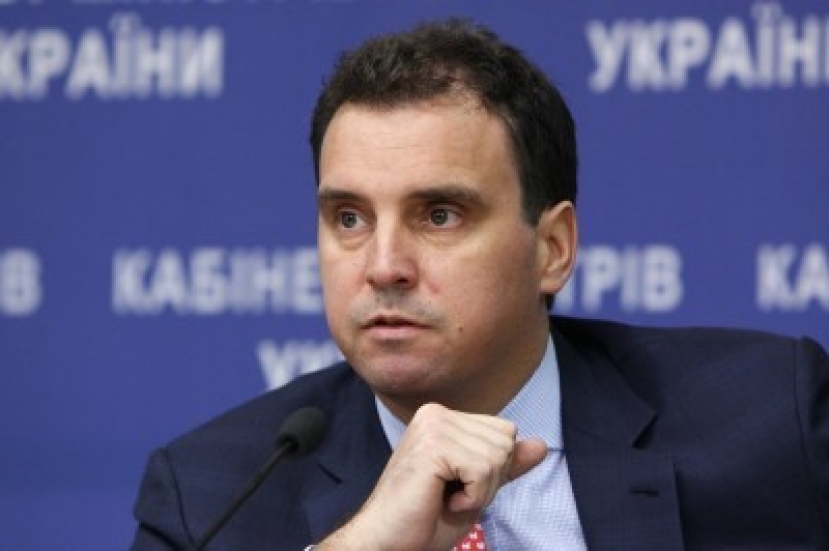In blow to Ukraine’s reform hopes, top official resigns, citing corruption
19.02.2016 19:15
 In blow to Ukraine’s reform hopes, top official resigns, citing corruption
In blow to Ukraine’s reform hopes, top official resigns, citing corruption
MOSCOW — In a blow to hopes that Ukraine will be able to overcome a decades-long struggle with corruption and mismanagement, the country’s Western-trained economy minister resigned Wednesday, saying he had been unable to beat back corruption.
Economy Minister Aivaras Abromavicius said that he had come under pressure from senior allies of the country’s president to make patronage appointments in state-owned companies and to appoint unqualified deputies who would have overseen the most lucrative industries in Ukraine.
The resignation fed growing concerns from Ukraine’s allies that the country remains stuck in unscrupulous dealmaking almost two years after pro-Western protesters overthrew President Viktor Yanukovych, whom they condemned as corrupt.
“We learned to manage the resistance of the old system, but it turned out that some of the new people around are even worse than the old ones,” Abromavicius told reporters in the Ukrainian capital of Kiev on Wednesday. “Neither I nor my team have any desire to be a cover for open corruption, or to be a marionette of those who want to establish control over state money. I do not want to go to Davos and talk about our successes, while at the same time deals are being concluded behind my back in the interests of certain people.”
Abromavicius, who was born in Lithuania, was one of a small team of Western-trained foreigners whom President Petro Poroshenko invited to join the government after his May 2014 election. The perception at the time was that Ukraine was so corrupt that the only people who could be fully trusted to fight it were people who were not Ukrainian. Abromavicius naturalized in order to take the post. Another foreign appointee was Mikheil Saakashvili, the former president of Georgia, who was named a regional governor and has also clashed with what he says is entrenched corruption among Ukraine’s new elite.
Abromavicius said that he decided to resign after one of Poroshenko’s closest allies, businessman and lawmaker Ihor Kononenko, tried to appoint unqualified deputy heads of the economy ministry who would have overseen the state-owned natural gas company NAK Neftegaz and Ukraine’s defense producers.
Kononenko is the deputy head of the president’s political party and is so close to the president that he has been nicknamed Poroshenko’s “gray cardinal.” Last year, the former head of Ukraine’s state security service, Valentyn Nalyvaichenko, accused Kononenko of money laundering. Kononenko denied those charges.
On Wednesday, Kononenko said that Abromavicius’s resignation was simply “an attempt to blame lawmakers from our party for a failure to solve issues that were not solved during the year,” Interfax-Ukraine reported. “I believe that ministers should be responsible for what they have done and not shift the responsibility over to the parliament.”
The resignation was met with disappointment from many of Ukraine’s biggest backers in the West, including the U.S. ambassador to Ukraine, Geoffrey R. Pyatt. He called Abromavicius “one of the Ukrainian government’s great champions of reform” in a posting on Twitter. Separately, he and ambassadors from Britain, France, Germany, Italy, Japan and four other Western countries issued an unusual public statement saying they were “deeply disappointed” by the resignation.
A spokesman for Poroshenko did not respond to a request for comment. Abromavicius’s predecessor as economy minister also resigned, citing frustration with the slow pace of reforms in the country.
The political turmoil comes as the violence in Ukraine’s east has largely calmed since September. Russian diplomats have said privately that they now see less need to apply direct pressure on Ukraine’s leaders as Russia watches the government lose support through problems of its own making.
Poroshenko has struggled to pass unpopular constitutional changes that would decentralize power from Kiev and hand more to Ukraine’s breakaway eastern regions. Those measures are part of peace agreements signed a year ago that would also require rebels to hand control of Ukraine’s borders back to Kiev, a step they have not taken. U.S. and European Union leaders have said they will not roll back sanctions against Russia until the measures of the peace agreement are fully obeyed.
